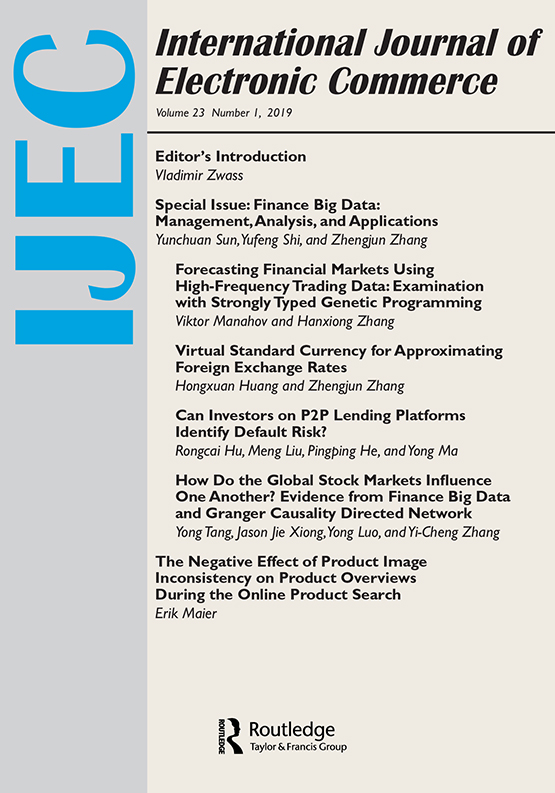现在和永远利用违约的力量?情绪与人格的影响
IF 3.8
3区 管理学
Q2 BUSINESS
International Journal of Electronic Commerce
Pub Date : 2022-10-02
DOI:10.1080/10864415.2022.2123646
引用次数: 2
摘要
摘要选择加入、选择退出和强制选择是最常用于激发消费者接受电子邮件通信意愿的三种策略。这项研究考察了这些政策在促使消费者同意接收电子邮件通信方面的有效性和持久性,同时消费者情绪和个性特征的影响也嵌入了研究框架中。三个实验作为数据收集的载体。使用logit和多元回归模型检验了默认政策与消费者情绪和个性特征之间的交互作用。结果表明,在促使消费者同意接收电子邮件通信方面,选择退出比选择加入和强制选择更有效。有趣的是,选择加入是获得更永久消费者同意的最有效政策。尽管消极情绪会导致消费者对电子邮件通知的同意率更高,但积极情绪会导致未来参与的同意率较高。神经质程度越高,接收电子邮件通知的意愿就越高,但外向性越高,未来的参与度就越高。这篇文章对违约、情绪和人格特征的文献做出了贡献。这些发现推进了这一理论,并具有重要的管理意义。本文章由计算机程序翻译,如有差异,请以英文原文为准。
Harnessing the Power of Defaults Now and Forever? The Effects of Mood and Personality
ABSTRACT Opt-in, opt-out, and forced choice are the three policies most frequently used to engage consumers’ willingness to receive e-mail communication. This research examines the effectiveness and the persistence of these policies in engaging consumer consent to receive e-mail communication, while the effects of consumer mood and personality traits are embedded in the research framework. Three experiments served as the vehicle for data collection. Interaction effects between the default policies and consumer mood and personality traits are examined using logit and multiple regression models. Results show that opt-out is more effective than opt-in and forced choice in engaging consumer consent to receive e-mail communication. Interestingly, opt-in is the most effective policy in engaging a more permanent consumer consent. Although negative mood results in a higher consumer consent rate for e-mail notifications, positive mood results in a higher consent rate for future engagement. Higher levels of neuroticism lead to higher willingness to receive e-mail notifications, but higher extraversion leads to higher future engagement. The article contributes to the literature on defaults, mood, and personality traits. The findings advance the theory and have important managerial implications.
求助全文
通过发布文献求助,成功后即可免费获取论文全文。
去求助
来源期刊

International Journal of Electronic Commerce
工程技术-计算机:软件工程
CiteScore
7.20
自引率
16.00%
发文量
18
审稿时长
>12 weeks
期刊介绍:
The International Journal of Electronic Commerce is the leading refereed quarterly devoted to advancing the understanding and practice of electronic commerce. It serves the needs of researchers as well as practitioners and executives involved in electronic commerce. The Journal aims to offer an integrated view of the field by presenting approaches of multiple disciplines.
Electronic commerce is the sharing of business information, maintaining business relationships, and conducting business transactions by digital means over telecommunications networks. The Journal accepts empirical and interpretive submissions that make a significant novel contribution to this field.
 求助内容:
求助内容: 应助结果提醒方式:
应助结果提醒方式:


